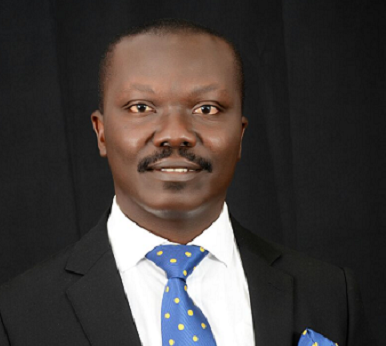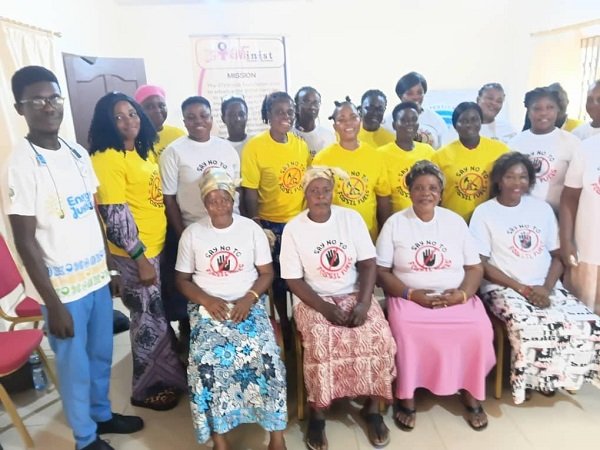Gender
Attacks on EC boss unacceptable-Women’s right groups.

The Abantu for Development and the Women’s Manifesto Coalition (WMC) have registered their displeasure at the recent personal attacks on the Electoral Commissioner, Mrs Jean Mensa.
According to a statement under the signature of the Executive Director of Abantu for Development, Dr Rose Mensah-Kutin, “those attacks on the EC boss are revolting, horrendous, awful and unacceptable”.
“We write jointly to indicate our horror at the increasing rate of attacks on women who take up leadership positions in our country.” they said.
According to them, unfortunately, we have sat in our comfort zones of incredulity, that now these abhorrent, vile, incendiary and contemptible verbal attacks are passing the threshold into threats of death.
“We are deeply saddened that women in leadership positions have faced multiple insults and acts of degradation over the years while performing their assigned and constitutionally mandated duties”. according to the statement.
According to the groups, in recent times, women in Ghana have managed to ascend to very high profile positions of leadership, some for the first time- the first woman Chief Justice, Georgina Theodora Wood; the first woman Electoral Commissioner, Charlotte Osei; the first woman Speaker of Parliament, Joyce Adeline Bamford-Addo and others.
These women and others served under the barrage of vitriol and threats, approval and disapproval from various sections of our citizenry. Nevertheless, they contributed in no small way, in progressing the aspirations and motivations of so many other women and helped push the nation’s required mandate of promoting women in institutional arrangements for sustainable development.
ABANTU for Development and the Women Manifesto Coalition have been consistent in their support and defence of women in national policy and decision spaces. As organisations, we will continue to advocate for the need for Ghana to hold itself accountable to its constitutional mandate of increasing women’s equal participation and representation in public policy making and decision making at all levels.
“We want to assure Mrs. Jean Mensa that we recognise the difficulties associated with serving in such a combative position as the Electoral Commissioner trying to satisfy strong diverse political viewpoints in the hope of delivering universally acceptable democratic and electoral outcomes”, the statement reiterated.
” What we will continue to condemn are threats of harm and death because those too contribute to the highest level of denial of human rights. We will however continue to support efforts at building consensus, compliance with constitutional mandates and the promotion of human rights, women’s rights and democratic governance.” The statement said.
By GhanaianTimes
Gender
Workshop to deepen coverage of gender-based issues held in Accra
A training and capacity-building workshop was held on Thursday for the media to intensify coverage on gender-based issues to support women’s participation in leadership and governance in Accra.
The workshop, held under the theme ‘Strengthening Advocacy for the Implementation of Ghana’s Affirmative Action (Equity) Law, 2024 – The Case of the Media’, brought together journalists from selected media houses.
The Convener of the Affirmative Action (AA) Law Coalition, Ms Sheila Minka-Premo (Esq.), stressed that the media has a critical responsibility to educate the public on the importance of the Affirmative Action Act, noting that sustained and informed reporting would strengthen advocacy and support the effective implementation of the law.
While commending both the Legislature and the Executive for the passage and presidential assent of the Affirmative Action Bill into law, the AA Law Coalition Convener appealed to government to address existing gaps. These include the constitutional provision of 30 per cent women’s representation in politics, inadequate policy frameworks to advance affirmative action, and weak compliance by state institutions.
She charged the media to highlight and promote the role of women in leadership and to actively support a smooth and effective implementation process of the Act.
In her welcome address, Executive Director of ABANTU for Development, Dr Rose Mensah-Kutin, said the training sought to strengthen journalists’ advocacy skills to enable them to educate the public on the provisions and significance of the law.
Dr Mensah-Kutin commended ActionAid Ghana for supporting the advocacy efforts, urging the media to prioritise the law to ensure its sustainability.
The Affirmative Action (Gender Equity) Act, 2024 (Act 1121) was passed by Parliament in July 2024 and received presidential assent in September 2024, following years of sustained advocacy by women’s rights organisations, gender activists, and other stakeholders.
By Linda Abrefi Wadie
Join our WhatsApp Channel now!
https://whatsapp.com/channel/0029VbBElzjInlqHhl1aTU27

Gender
STEMinist Foundation, Keta Ramsar centre train women on rights, leadership

STEMINIST Foundation, Ghana, a Non-Governmental Organisation (NGO) with support from Keta Ramsar Centre has trained about 25 women selected from the Keta Municipality on the rights of women and how to use them for their voices to be heard in their communities.
STEMinist Foundation, Ghana, is a network of women advocating equal opportunities through excellent representation of women in Science, Technology, Engineering and Mathematics (STEM).
The women, mostly fishmongers and other self-styled workers, were taken through topics such as Understanding Energy and Climate Justice, Fossil Gas Expansion, Livelihoods’ Care Work and Health, Women Leadership, and Power Building among others.
Mrs Nerissa Edem Anku, Gender Justice Transition Advisor of the Foundation, noted that the theme “Energy Justice: Empowering Women with Power, Rights and Dignity,” was chosen for the women to reconnect, reflect, and look ahead in shaping their rights as women.
She stated that women have been relegated to the background in the communities when it comes to decision making, stressing the need to correct that for them to know they have rights to fight for themselves.
Mrs Nerissa Edem Anku further noted that women in fishing communities wanted to see real and tangible improvements in their living conditions, spearheaded by government to prevent unhealthy confrontations with the local people.
She assured that the NGO would continue to strengthen its programmes to ensure that women were empowered to contribute meaningfully to the socio-economic development of their families, communities, and the nation.
Miss Portia Adu-Mensah, Facilitator, Community Mobilisation Communicator, on her part added that all stakeholders have to adopt more innovative steps to build an environment in which women can thrive. That, she said, would win the confidence of the women and promote more inclusive partnerships.
The Assemblywoman for Dzelukope, Ruby Adukpoh, on behalf of the women thanked the NGO for the gesture and reaffirmed their commitment to strengthening their collective voices and influence in shaping policies that will affect them.
From Kafui Gati, Keta
Join our WhatsApp Channel now!
https://whatsapp.com/channel/0029VbBElzjInlqHhl1aTU27







